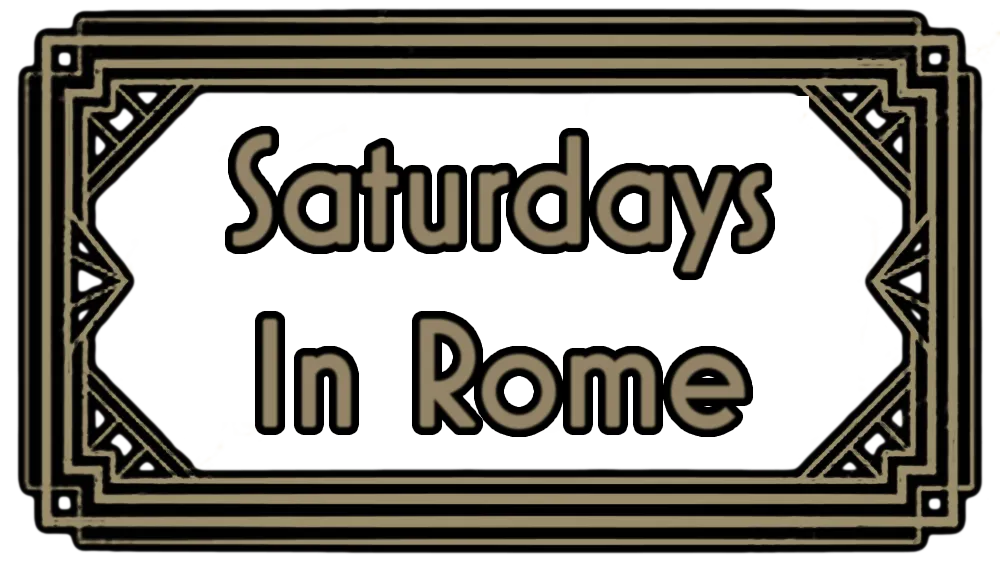13 Idiomatic Expressions In Italian You Need To Learn!
These 13 popular idiomatic expressions in Italian are frequently used and knowing them will certainly help you on your journey to learn the Italian language.
“I Know My Chicken!”
One of my favorite things about learning the Italian language is when I come across idioms that seem fun and maybe even a little strange. We have them in the English language as well, like “Break a leg!”, “It’s the best thing since sliced bread!” and “Hit the sack”. These phrases have specific meanings and they are used in specific situations, but they should definitely not be taken literally. As I have been learning Italian, it is clear that Italian idioms are no different.
Need Help Planning?
- Cheap Flights: Find The Most Affordable Flights.
- Accommodations: From 1 to 5 Stars And More.
- Car Rentals: Affordable Travel Across Italy.
- Sightseeing Tours: Explore Some Amazing Tours.
- Buying An eSIM: Stay Connected In Italy.
This post includes affiliate links.
As a little background, the word idiom comes from the Latin idioma and means “a peculiarity, property, a peculiar phraseology”. Or it can also be thought of as a language specific to a nation, like the Italian language, which includes dialects, or a particular way of speaking. It is also important to make note of the context, or surrounding words, for it to make sense. Like in English, this is also the case for Italian. Idioms can help you express something that you want to say easily and simply. You can use idioms by themselves, or as part of a sentence.
Rick Steves Italian Phrase Book
Don’t go anywhere without one of Rick Steves’ amazing travel guides, and this phrase book will help you navigate Italy even better!
Idiomatic Expressions In Italian
So what about Italian idioms? They aren’t just an Italian translation of English idiomatic expressions, but when you hear or read them, some of them are so similar that it begs the question: Are these Italian idioms copied into English or vice-versa?
There are a very large number of Italian idioms because of the age, influences and liveliness of the Italian language, but this post is all about the most popular (or funny) and frequently used idiomatic expressions in Italy, which will certainly help you on your journey to learn the Italian language.
Also, on a quick editing note, I’m not sure if I will be able to find images that match these expressions, so I will be including videos for your enjoyment and as living examples.
Idioms of Luck And Good Fortune
The ideas of luck and good fortune have a long history in Italy. If you want to wish someone “good luck” in Italian, the most common way would be to say “Buona Fortuna!”. Another popular way to wish luck, albeit a little less formal, would be to say “In bocca al lupo.” The literal translation means “into the wolf’s mouth,” which seems odd if you forget about the popular English expression “break a leg.” Both sound pretty strange to language learners, but they are quite normal and useful idiomatic expressions.
Living Language Italian, Complete Language Course
This fun calendar is great to sit on the corner of your desk and help you learn new Italian words everyday. I used it for years!
In Bocca al Lupo!
As mentioned above, this literally translates to “In the mouth of the wolf!”. I’ve read that this, like “Break a Leg”, also has its origin in the theater, I’ve heard this used in many situations. Almost as strangely, the typical response is Crepi or Crepi il Lupo, which means: Die! or May the wolf die.
In Culo alla Balena
This is a colloquial term, a bit less common than In Bocca al Lupo, but also a touch vulgar. With this phrase one wishes good luck to those who are about to face a dangerous or difficult task. My favorite part of this idiomatic expression is the somewhat vulgar response that is often used: Speriamo Che Non Caghi!, which means: Let’s hope it doesn’t shit!
Gettare il Mal Occhio
L’ITALIANO per l’arte
Sara has written an amazing book that combines learning Italian with Italian art that makes language learning fun!
There is a lot of mysticism in Italy, especially in the south, so one would use this Italian expression if they wanted someone to have a bit of misfortune. If you want to Gettare il Mal Occhio, you want to Throw the Evil Eye at someone. This phrase has been used in the US and has a wide range of pronunciations, but they seem to all be based on the single word: malocchio, meaning Evil Eye.
Food Related Idioms
It should be no surprise that the Italian language is filled to the brim with food related idiomatic expressions. This list is only some of my favorites.
Un Pezzo di Pane
While at first glance it might not be obvious why calling someone Un pezzo di pane, which translates to being a piece of bread, is a compliment. When you consider how important and foundational bread is, it becomes a little clearer how this can be a positive. If you want to consider some English phrases, compare it to calling someone a Good Egg or a Smart Cookie.
A Piece Of Bread
Buono Come Il Pane
Continuing with the bread theme, you can also an Italian idiomatic expression to describe someone as buono come il pane, which means “good like bread.” For example: Roberto è buono come il pane! This means Robert is a great guy!
Acqua in bocca!
At first I thought acqua in bocca was along the lines of being mouthwatering, but that would have been much too obvious and the phrase Water in your mouth is a different idiom entirely. Imagine having some water in your mouth and not wanting to spill anything. You should keep your mouth closed (i.e. shut-up) so you can imagine something more in the vein of keep in under your hat! or Mums the word!
Water In Your Mouth – Sort Of
Non Sei Capace di Tenerti un Cece in Bocca
If you don’t keep your mouth shut, have no restraint and love to gossip, you could be described as someone who can’t hold a chickpea in their mouth. One can imagine this being applied to old clucking hens (gossipy ladies) who can’t keep their mouths shut. In other words, it’s a clever way to say that someone has a big mouth!
Conosco I Miei Polli
L’Italiano Per La Cucina
Have fun learning Italian while cooking some amazing and traditional recipes from Italy. I completed the entire book and it was delicious!
The fact that I haven’t used this expression yet probably says something about me, but to say: Conosco I Miei Polli is a way to demonstrate confidence and arrogance. This common idiomatic expression literally translates to English as I know my chicken. This means that you are confident that you know everything about something. It is similar to the English phrase: I know my stuff! or a slightly more vulgar version.
Behavioral Idiomatic Expressions
Non Vedo L’Ora!
This is a VERY common idiom in Italian and is used when you want to express how excited you are for an upcoming event. The literal translation is I can’t see the hour, which is a little tricky to understand, but it just means I Can’t Wait!
Che Palle!
Che Palle!
The meaning of Che Palle, is: What Balls! If you have seen any modern gangster movies or TV shows with Italian-Americans, I’m sure you have heard: Minghia, the balls on that guy!. Not the most charming turn of phrase and probably NSFW, but it is so common that I chuckled a little when I went to Palermo and tried some Arancine in a local chain restaurant that specializes in them called: Ke Palle.
Avere La Puzza Sotto Il Naso
The idiom is a little more visual and it helps if you act out the description in the mirror. The phrase: “avere la puzza sotto il naso” literally translates to having a bad smell under your nose. Make that face in the mirror and you will understand that it means that someone is a snob or someone who thinks that they are better than everybody else. They turn up their nose as if everything disgusts them.
Non Mi Rompere Le Scatole
The idiomatic meaning translates to don’t break my boxes, and if someone is breaking your boxes, they are annoying you and you want them to stop. It’s worth including a variation of the less polite idiom: Non mi rompi le palle or describing someone as being a rompipalle, as in: Il tuo nuovo fidanzato è un vero rompipalle. Meaning: Your boyfriend is a real pain in the arse!
Avere Il Braccino Corto
This is also a common English idiom, but it may be a little outdated by today’s equivalent phrases. People with il braccino corto, which translates to having a short arm, are people who are cheap. The mental image is as if their arms are too short to reach for their wallets, reach for the check or into their pockets for cash.
Idiomatic Expressions In Italian For Everything!
Learning these fun, and sometimes vulgar, idioms and expressions really bring to life the language. Like English, they show a language and culture that continues to grow, develop, expand and incorporate new ideas into their daily lives. I get a kick out of the more crude expressions, which I have excluded from this post, and get a chuckle when I hear someone use them in everyday interactions.
Common Idiomatic Expressions In Italian Are Just The Beginning
I can’t imagine going through life here in Italy and not trying to follow along when someone gets a little less formal, a little more imaginative and even a little cryptic. These idiomatic expressions in Italian can help, and I hope you will also check out these posts about the Italian language:
- How To Learn Italian Using Fun and Practical Methods.
- Italian Language Classes Around The US Are Here For You!
- These Italian Superstitions Need To Be Understood And Loved.
- The Best Way To Learn Italian Online Is Waiting For You.
- Is It Illegal To Speak English In Italy For Anyone?
- Learn What Is Considered Rude In Italy Without Embarrassment.
- Mastering The Italian Keyboard Layout And The Alphabet.
- How To Make Friends In Rome While Embracing The Culture.
- The Roman Dialect Is Tricky And We Are Here To Help You.














